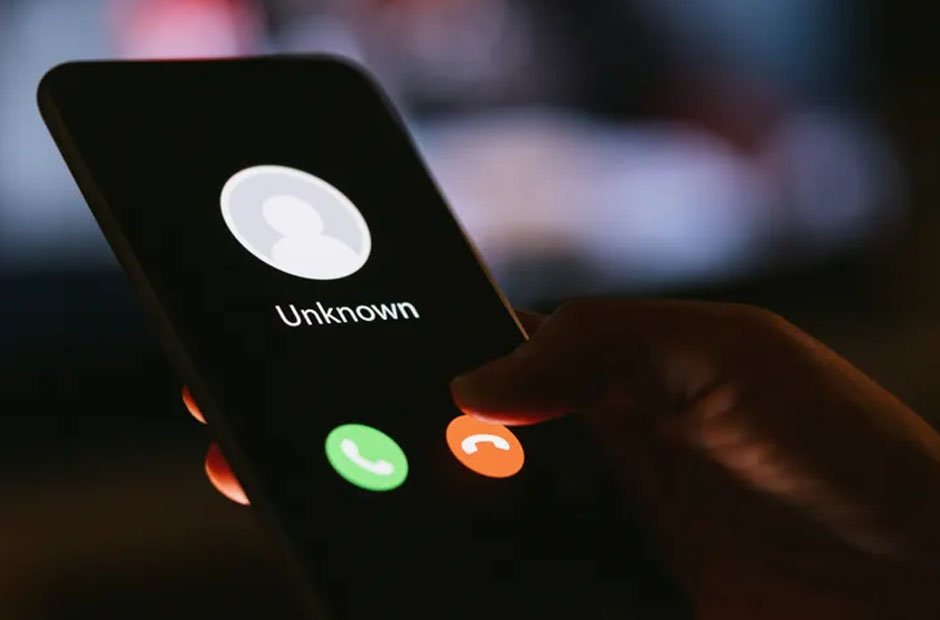
Nowadays, iPhone and Android users must keep their privacy online because of the risks, like spying or hacking. However, Android and iPhone are exposed to cyber-attacks via malware like Pegasus and Flubot. Achieving anonymity is mandatory against data breaches and surveillance, but it’s manageable with just simple steps.
What are the Reasons for Keeping My Anonymity on Android or iPhone?
Mass surveillance and common cyber attacks in the modern era pervade the world. The count of cyber attacks and data leaks keeps on increasing every day.
Therefore, whether it is Android users or iPhone users, each individual remains vulnerable to a surfeit of online security issues, such as:
- Social engineering attacks
- Malware and spyware attacks
- Online vigilance by ISPs and governments
- Browser vulnerabilities
- Third-party application-based data breaches
- GPS tracking
- Online cookies and trackers
- Email security issues
These are the most common threats that both device owners often face. Although they seem less harmful, they all have the power to cause devastation. Cyber intruders use the attacks to sell information in the dark web community, cause identity theft, or cause financial fraud to have money. Alas, amidst the storm, anonymity calls for everyone.
How to Remain Anonymous on iPhone or Android
In contrast to people’s common views, it is impossible to achieve anonymity using just a few online security tools. Security of the online system alongside anonymity is the priority. But one must consider that on the contrary, dealing with these problems goes far beyond financial reporting and safety.
Here are some of the best tips on how to remain anonymous on your Android or iPhone:
1. Use a VPN
Internet usage implies regular surveillance of your ISPs and those of third-party agencies’ activities, which is another way to breach your privacy. Commonly, the ISP monitors and sells the data used. The VPN support for iPhone and Android should be a standalone feature.
A VPN makes it impossible for others to see the IP address you use and gives your data encryption. Therefore, the contents of your data cannot be read by any third party. It helps you to stay secure and keeps your personal information protected. Therefore, this criterion is very important.
A VPN grants you access to a different IP address, which you can use to secure your real IP address. It allows you to direct your actions away from ISP monitoring, government spying, or third-party agents.
When picking a VPN, avoid free options and choose secure ones for iPhone or Android like:
- ExtremeVPN: It is reliable and has an important encryption technique. It maintains a policy of not keeping logs of what you do on its sites.
- ExpressVPN: Evolving in Romania, it includes the goal of AES-256 encryption and the principle of a strict no-logs policy.
- NordVPN: Panama also provides users with airtight encryption and a legitimate zero-logs guarantee.
Unlike free VPNs, which could feature some small log-sensitive spots, they also powershift to asymmetric encryption.
2. Apply the Incognito Mode
VPNs protect against online monitoring and tracking, especially on Android and iPhone devices. Changing the toolbar icon and handling browser security issues is also important. On the other hand, people may have their favourite browsers optimized for regular use and not for privacy, such as Chrome and Edge.
They gain the majority of the total purchase price. As a secure and paid option, the Firefox browser also catches your IP addresses and geographical locations. Additionally, these browsers can leave you open to different vulnerabilities, like:
- Browser fingerprinting
- Cookies and trackers
- Malicious ads
To achieve anonymity on iPhone or Android, utilize secure browsers such as TOR, DuckDuckGO, and Brave.
They provide security from the threats perceived through browsers; some may even include adblockers.
3. Start Using Private Search Engines
Main search engines threaten online anonymity because they can collect lots of user data. Even VPNs and private browsers cannot protect 100% of anonymity, which is violated by using these search engines.
Microsoft Bing, Google, and others have been in those cases, e.g., Yahoo in 2014 and Bing in 2020. These breaches exposed private information, including:
- Search words take explicit texts and search times into account.
- User device information such as OS is also a factor to be considered.
- Precise location coordinates.
Use private search engines like searX, Startpage, and Qwant to protect your privacy. They don’t track or store your data, providing safe and reliable anonymous browsing on Android and iOS.
4. Use the Best Browser Incognito Mode
Using the browser’s incognito mode with a VPN and secure search engine is an alternative for private browsers.
It can help protect your privacy online. Incognito mode, available in browsers like Firefox, Google Chrome, and Microsoft Edge, enhances security by:
- It is not a history saver, nor is it cookies and website data.
- Blocks third-party cookies.
- It doesn’t provide the persistent storage functionality to store information in forms.
On the other hand, websites, schools, and ISPs still monitor users even while using incognito mode. Hence, the need to use incognito mode in conjunction with a trustworthy and secure VPN provider has become inevitable.
5. Utilize Anonymous Messaging Apps
For complete anonymity on iPhone and Android, you must use more than VPNs and private browsers. Message apps are useful for keeping private.
Use secure messaging apps like Telegram, Signal, and Wickr for anonymous communication on iPhone and Android. Also, consider adding 2FA for extra protection.
6. Try Anonymous Calling Apps
Phone numbers are always personal since they are direct ways of contact. Originally, you’ll just give your phone number to a stranger, who could later spam you or even make you a victim of voice-over phishing attacks.
In addition, if you have this possibility with the correct means, it is also possible to track you with your phone number. In other words, if anyone has access to your phone number, your anonymity might be in danger because:
- Enables direct communication amidst the noise.
- Risk of defense compromise via email spoofing and voice phishing.
- Possibility of being followed while on the move.
Use reliable anonymous call apps to protect your information. Apps like Sideline, Hushed, and MeCover allow anonymous calling and messaging with end-to-end encryption. They work on both Android and iOS, ensuring privacy online.
7. Use Anonymous Email Providers to Send Emails Anonymously
When emailing, users often skip reading emails, which is part of eliminating anonymity. Browsers and telecommunication anonymity are the main things users think about, while email anonymity is not even mentioned.
On the other hand, while the internet offers convenient platforms such as Google, they are not as secure as they look. They gather personal data that people can use to interfere with users’ privacy.
It includes hacking, snooping, and breaches. Some information they gather includes:
- Name, Phone number, and Device name
- Email contents
- IP address and timestamp
Trust only iPhone and Android users who use secure, anonymous email platforms like Hushmail, ProtonMail, and PrivateMail. These services encrypt emails, ensuring privacy and security without logging or tracking.
8. Be Cautious of Third-party Apps and their Permissions
The third-party apps on Android and iPhone may warn about anonymity in the web-based applications because they can access personal data. Furthermore, Google and Apple’s efforts to eliminate malicious apps are not enough in this regard.
It is because there are vulnerabilities, so there also may be infiltrators. Tearing them up as a whole is hard. They steal various data types, including:
- Phone model, screen resolution
- Phone MAC addresses
- Telecom service provider information
Android and iPhone customers must limit their permissions to apps so malicious apps cannot access such information. This violation of privacy and the fact that users are no longer anonymous are products of this. Thus, such situations are the reason to be cautious about these applications.
9. Switch Off Your GPS and Location Services
GPS and location services in apps are important but can risk anonymity by enabling tracking. Turning off GPS and sharing location information only when necessary helps maintain anonymity.
Android Users
Swiping from the top and touching and holding the location icon pulls down the screen. In addition, tapping on settings, locations, and app permissions allows you to manage which apps can track your location.
iPhone Users
An iPhone user can turn off location services by pressing the location icon or navigating to Settings, Privacy, and Location Services. It enables them to control apps’ access to location. Even so, third parties like Google can still track users using their IP addresses outside such apps.
10. Disable Google services
Google’s services are undoubtedly user-friendly but can harm users’ privacy by collecting and trading data with other firms. These steps may be enough to preserve privacy on Android and iPhone, but Google can still bypass these procedures.
Turning off unwanted Google services should be a priority for people who want to keep their identity private. Users can do this by going to Settings, Apps, and All Apps and turning off the Google services they don’t need.
11. Encrypted Cloud Backups Should Be Used
Ensure a superset of data is saved whenever you have complete anonymity on your iPhone and Android devices.
Using the most widespread platforms like Dropbox and Google Drive is a direct traitor to your anonymity attempts.
Recording of privacy breaches by Google and the most recent hack of Dropbox show how vulnerable my data is. Other issues with mainstream cloud backups include:
- They lack zero-knowledge encryption.
- Vulnerabilities exist that make them prone to hack attacks.
- Operate in jurisdictions with invasive privacy laws.
For secure data backup, consider encrypted cloud services like Spideroak, Sync, and Tresorit.
12. Encrypt your files and folders
Anonymity can only be preserved when you encrypt your files and folders on the device. Data like passwords and financial records like unencrypted Android or iPhone will be exposed. It mixes up data, making it unrecognizable and preventing the data, thus from being stolen.
- Digital property hacks and data leaks.
- Third-party snooping.
- Spyware, malware, and ransomware.
Only a few apps encrypt files and folders on iPhones and Androids. Some secure options include AxCrypt, SSE, and Zencrypt. These apps use encryption ciphers like AES and offer various pricing options. Additionally, both Android and iPhone have built-in encryption settings.
Conclusion
Anonymous online use plays a key role in the security of iPhone and Android users. Every person who risks going online has to deal with a gross attack on privacy. These attacks happen from surveillance agencies, intrusive governments, third parties, or cybercriminals. Luckily, there are many approaches to maintaining privacy and security. These tips for Android and iPhone users will protect their online privacy and provide anonymity.
FAQs
What Should I Do To Keep My Phone Privacy-Protected?
To stay anonymous on your phone:
- Use only secure browsers and private search engines, and operate on a reliable VPN.
- Employ anonymous communication apps.
- Encrypt files and folders.
- Disable unnecessary Google services.
How can I ensure complete anonymity on my iPhone?
To ensure complete privacy on your iPhone, use VPNs, private browsers, and secure search engines. Utilize encrypted communication apps and prevent app data sharing with third parties. Encrypt your files and turn off tracking services like Google.
How can I browse completely anonymously?
- Use a VPN for encrypted connection.
- Use private search engines.
- Use safe browsers to avoid tracking.
- Consider incognito mode in traditional browsers.





